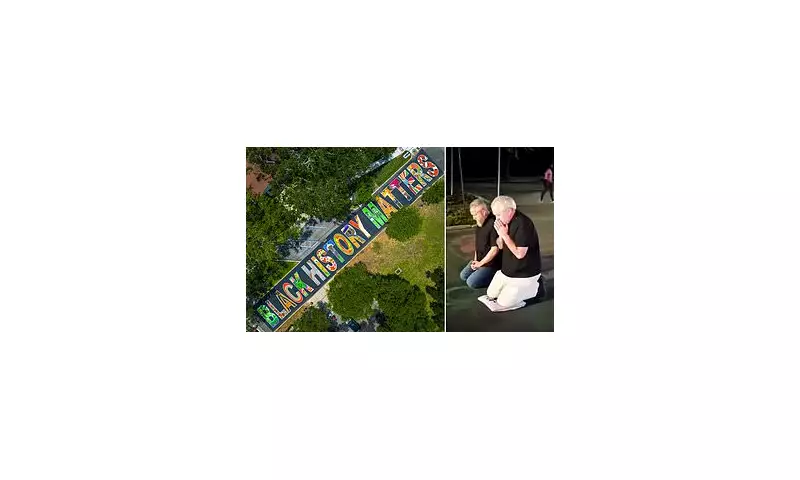
A powerful act of peaceful protest has unfolded in the West Midlands, where a local pastor took to his knees in front of a bulldozer to prevent the removal of a community Black History Month mural. The dramatic standoff has raised urgent questions about racial representation and local authority decision-making.
Standing Ground for History
Reverend Desmond Jaddoo, a respected community leader, positioned himself directly in the path of council workers sent to dismantle the prominent artwork. The mural, celebrating Black British history and achievements, had become a cherished landmark within the local community since its installation.
The confrontation reached a critical moment as the pastor remained steadfast despite workers attempting to proceed with the removal. His peaceful demonstration drew immediate support from bystanders and community members who joined in expressing their dismay at the council's actions.
Council's Controversial Decision
Local authorities defended the removal, citing technical regulations and permission issues. However, community advocates argue the decision reflects deeper systemic issues regarding whose history is valued and preserved in public spaces.
"This isn't just about paint on a wall," one community organiser stated. "This is about visibility, representation, and whether our stories matter enough to be seen in our own neighbourhoods."
Growing National Conversation
The incident has transcended local boundaries, sparking a broader national discussion about how Black history is commemorated in public spaces across the UK. Many are questioning whether current policies adequately support diverse historical representation.
The protest has gained traction on social media, with thousands expressing support for preserving the mural and criticising the council's handling of the situation. Community leaders are now calling for urgent meetings with local officials to find a resolution that honours both regulations and racial equality.
As tensions continue, the mural remains standing—for now—while both sides seek a path forward that respects both community values and administrative processes.





